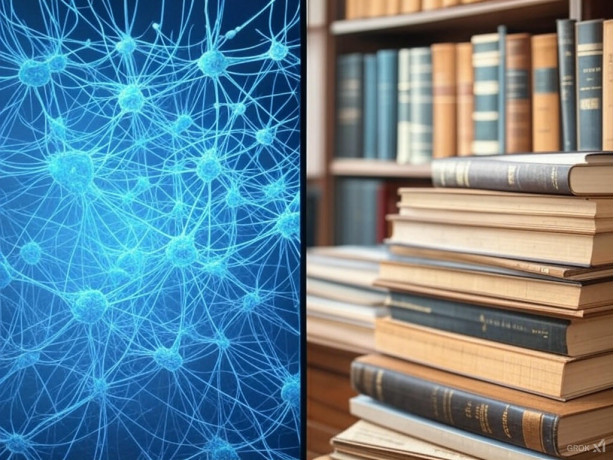Neural Networks: The Power of Machine Learning
Neural networks, such as DeepSeek, Claude, Gemini, and Grok, are based on machine learning. They analyze vast amounts of data, identify complex patterns, and adapt to new conditions.
Advantages of Neural Networks:
-
Flexibility: Capable of learning from new data, making them ideal for dynamic fields.
-
Handling Complex Data: Effective at processing unstructured information, such as contract texts or court decisions.
-
Scalability: The more data, the higher the accuracy of predictions.
Disadvantages of Neural Networks:
-
Lack of Transparency: The decision-making process of neural networks is difficult to explain, which is critical in legal practice.
-
Data Dependency: Performance directly depends on the volume and quality of training data.
-
High Computational Costs: Require significant resources for training and operation.
-
High Deployment and Training Costs: Setting up and training a neural network on a local server can cost hundreds of thousands of rubles. For example, training a mid-level model requires a server with a GPU (e.g., NVIDIA A100), which starts at around 500,000 rubles, plus additional costs for electricity and maintenance.
Expert Systems: Transparency and Control
Expert systems are based on clear rules defined by legal professionals. They are ideal for tasks with strict standards, such as verifying contracts for compliance with legislation.
Advantages of Expert Systems:
-
Transparency: The logic is clear and explainable, which is crucial for legal professionals.
-
Reliability: Consistently perform well in narrow domains with well-defined rules.
-
Minimal Data Requirements: Do not require large volumes of data to operate.
-
Ease of Deployment: Expert systems created using low-code platforms like Botman.one can be quickly and easily deployed on a local server, which is especially important when working with personal data.
Disadvantages of Expert Systems:
-
Limited Flexibility: Unable to adapt to new scenarios without human intervention.
-
Development Complexity: Creating and maintaining a knowledge base requires expert involvement.
-
Inefficiency with Complex Data: Not suitable for analyzing unstructured information.
Comparative Table: Neural Networks vs. Expert Systems
| Criterion | Neural Networks | Expert Systems |
|---|---|---|
| Transparency and Explainability | 3 | 10 |
| Reliability in Narrow Domains | 7 | 10 |
| Flexibility and Adaptability | 10 | 3 |
| Handling Complex Data | 10 | 4 |
| Scalability | 10 | 5 |
| Data Requirements | 8 | 10 |
| Development Complexity | 6 | 3 |
| Quality Control | 5 | 10 |
| Dependence on Experts | 2 | 10 |
| Computational Costs | 4 | 10 |
| Overall Score | 65/100 | 75/100 |
Which Approach to Choose?
When to Choose Neural Networks:
-
If the task involves analyzing large volumes of unstructured data (e.g., analyzing case law).
-
If adaptability to changing conditions is required (e.g., predicting court outcomes).
-
If explainability of decisions is not critical.
When to Choose Expert Systems:
-
If the task requires full transparency and control (e.g., verifying contracts for compliance with legislation).
-
If the domain is narrow and static (e.g., standardized legal procedures).
-
If access to large volumes of data is limited.
-
If it is important to ensure the security of personal data by deploying the system on a local server.
Low-Code Platforms: The Golden Middle Ground
For those who want to combine the advantages of both approaches, low-code platforms like Botman.one are an ideal solution. They allow you to:
-
Quickly create and use expert systems for transparent and controlled processes.
-
Leverage neural networks for analyzing complex data and making predictions.
-
Rapidly configure workflows without programming.
-
Easily deploy solutions on a local server, ensuring data security.
Automation of legal work is not just a trend but a necessity in the face of growing data volumes and tightening regulations. Neural networks and expert systems each have their strengths and weaknesses, and the choice between them depends on the specific task. Low-code platforms offer a flexible approach, enabling legal professionals to leverage the best features of both methods.
If you want to stay ahead, start implementing LegalTech solutions today.
You can discuss the latest news on #LegalTech, #LowCode, #automation, and other topics related to technology and law in our Telegram group: [link].
